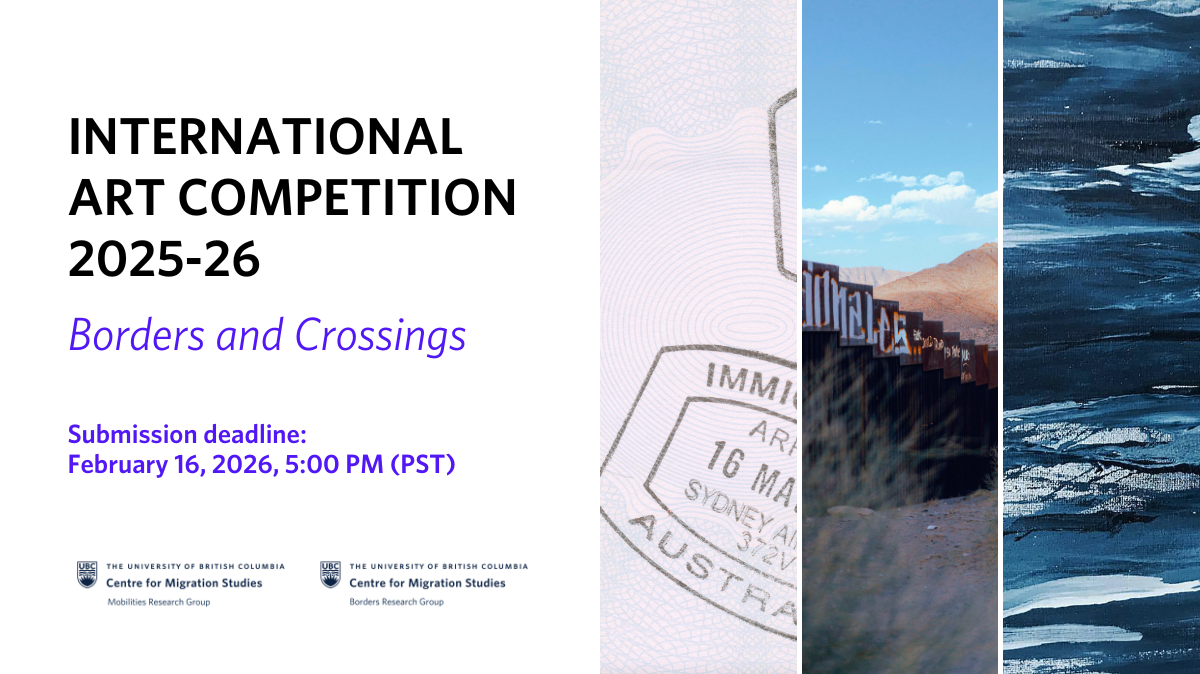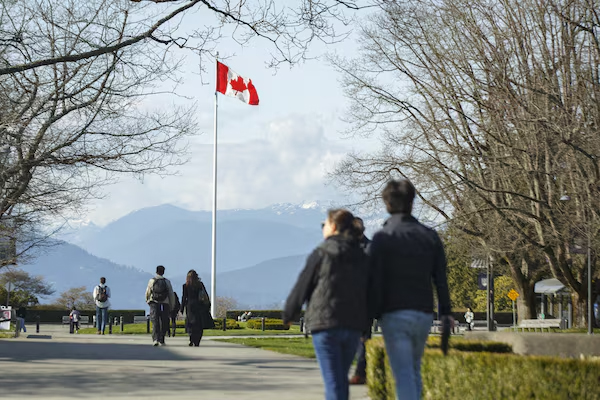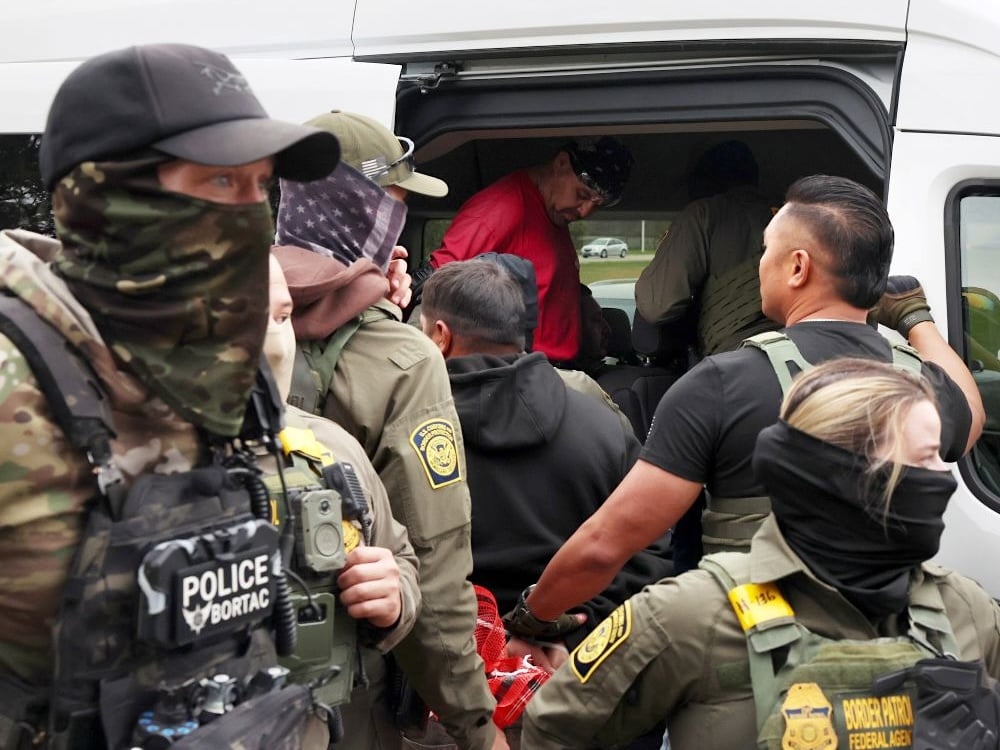

Photo by Solange Adum Abdala.
We’re thrilled to introduce the 2025–2026 cohort of students in the Graduate Certificate in Migration Studies.
Drawn from nine UBC departments, this second cohort explores migration through a wide range of lenses, including adult education, diaspora engagement, forced displacement, transnational mobility, cultural and ecological intersections, political behaviour, and the social and economic dimensions of migration.
Meet the students below!


Afsaneh Abbaszadeh
Master’s Student, Educational Studies
Afsaneh’s research focuses on adult learning and education, particularly in the context of migration. As a Graduate Research Assistant on the ALE-in-ISI project, a Canada–Germany collaboration, she explores how adult education programs support skilled immigrants and refugees in their settlement journeys. Her work involves investigating programs that provide language training, employment preparation, and citizenship education—key components in fostering integration and participation in Canadian society. This research directly addresses the educational and social needs of migrants, aligning with her broader commitment to supporting immigrant communities.


Vladimir Beciez Romero
Master’s Student, French, Hispanic and Italian Studies
Vlad has built a long career in public service across Canada and Mexico, specializing in arts, sports, and community engagement programs. His work has often focused on supporting immigrant communities—something he relates to personally as an immigrant himself, having lived and worked in environments with large Mexican populations in the U.S. and Canada. He speaks Spanish and English fluently, with working knowledge of French and Italian, and is committed to fostering inclusion, culture, and innovation in public service.


Lindsay Burlie
Master’s Student, School of Public Policy and Global Affairs
Lindsay Burlie is a second year Master of Public Policy and Global Affairs student at UBC, specializing in migration, forced displacement, and conflict. She brings extensive frontline experience to her studies, having worked at MOSAIC as a Resettlement Case Worker supporting Afghan refugee sponsorship, and previously at Ernst & Young LLP as a Law Clerk in U.S. immigration. She has also volunteered internationally, including at Moria Refugee Camp in Greece. Lindsay is passionate about addressing systemic barriers in Canada’s immigration system and hopes to build a career advancing refugee and migrant rights through evidence-based policy.


Imroze Deol (Imroze Singh Goindval)
PhD student, School of Population and Public Health
His research engages with issues of migration by exploring how cultural beliefs surrounding intellectual and developmental disabilities (IDDs) are transferred across borders with immigrant families, particularly within the Panjabi diaspora. He focuses on how these cultural misconceptions, formed in Panjab, India, persist through migration and continue to shape healthcare access in Canada. By examining the interplay of migration, healthcare systems, and cultural beliefs, his work highlights the barriers immigrant communities face in seeking care for IDDs. Ultimately, his research aims to develop culturally sensitive interventions that improve healthcare access for marginalized populations impacted by migration.


Paul Haase
PhD student, French, Hispanic and Italian Studies
Paul’s research examines contemporary Central American cinema and its use of self-reflexive strategies to question how stories of migration, conflict, and identity are told. He analyzes how filmmakers grapple with issues of representation and complicity while working within the region’s cinematic landscape. Drawing on film theory, cultural studies, and decolonial approaches, he treats cinema as both artistic expression and philosophical inquiry. His background in literature and cultural studies in Guatemala, together with his experience as a filmmaker, grounds this work in both creative and critical practice.


Sion (Daniel) Hwang
Master’s Student, Sociology
Daniel’s past research focused on the labour-market outcomes of migrants in Canada, examining how they enter and navigate the labour market and how identity factors, such as ethnicity, education, and language, influence their employment trajectories. His MA research explores the impact of workplace policies designed to promote fairness and inclusion on the demographics of leadership positions, with particular attention to gender and racial diversity, as well as how these changes are perceived by others.


Tamar Kugelmass
Master’s Student, Central, Eastern and Northern European Studies
Tamar’s research focuses on the global rise of the New Right and the cultural struggles they have waged across higher education, literary publishing, and the “Western canon.”In particular, Tamar studies the “intellectual slippages” of the political movement in which the far right, to achieve its vision of a counter-liberal hegemony, has begun to borrow from the critical inheritance of Marxist cultural theory. She is researching the intersection of German memory culture and immigration discourse. In particular, she focuses on the way contemporary narratives of migration have converged with the myth of “imported anti-Semitism” to advance a politics of exclusion across Germany and the United States.


Lydia Laflamme
PhD student, Political Science
Lydia’s research interests lie at the intersection of political behaviour, public policy, and social psychology. She focuses on integration policies in Canada, as well as immigration attitudes and how they relate to perceptions of cultural threat.


Cindy Robin
PhD student, Political Science
Cindy’s research focuses on (e)migration and citizenship issues in developing countries. Her dissertation examines the political and economic dimensions of diaspora engagement in Anglo-Caribbean small island developing states (SIDS), exploring the factors that shape how diaspora communities contribute to the development of their home countries.


Roswitha Caroline Stampalika
Master’s Student, Anthropology
Caroline’s research explores the entanglements between migration, ecology, and culture, tracing how the movements of people, more-than-human life, and traditions shape livelihoods and transnational connections. Her master’s research ethnographically examines migratory beekeepers in Greece who seasonally relocate their hives in response to flowering cycles, investigating how climate change, policies, and austerity measures affect their mobility and livelihoods. She has also published an autoethnography on the circulation, transformation, and adaptation of cultural practices related to the folk belief in the evil eye within the Greek diaspora in Germany and Canada.


Isabel Telleria
Master’s Student, Anthropology
Isabel’s research interests broadly revolve around Latinx studies, migration, identity, liminality, and social media work. More specifically, her MA project aims to investigate how so-called “No Sabo Kids” – children of the Latinx Diaspora in the United States who do not speak Spanish “properly” – create senses of self within and outside of virtual worlds like TikTok. At the heart of this research project lies a preoccupation with the pressures of integration on diasporic communities within an increasingly anglo-dominant United States. Additionally, the project hopes to explore the role both language and virtual platforms play in diasporic community formation and belonging.


Nanda Warren
PhD student, Language & Literacy Education
Nanda is an adult educator who has worked with English language learners in diverse contexts across North America, including Minnesota, New York City, Texas, California, and Vancouver. These wide-ranging experiences inform her research interests in critical digital literacy practices and language learning among transnational migrants. More broadly, she is committed to creating educational experiences that support meaningful career and continuing education pathways for adults from immigrant and refugee backgrounds.


